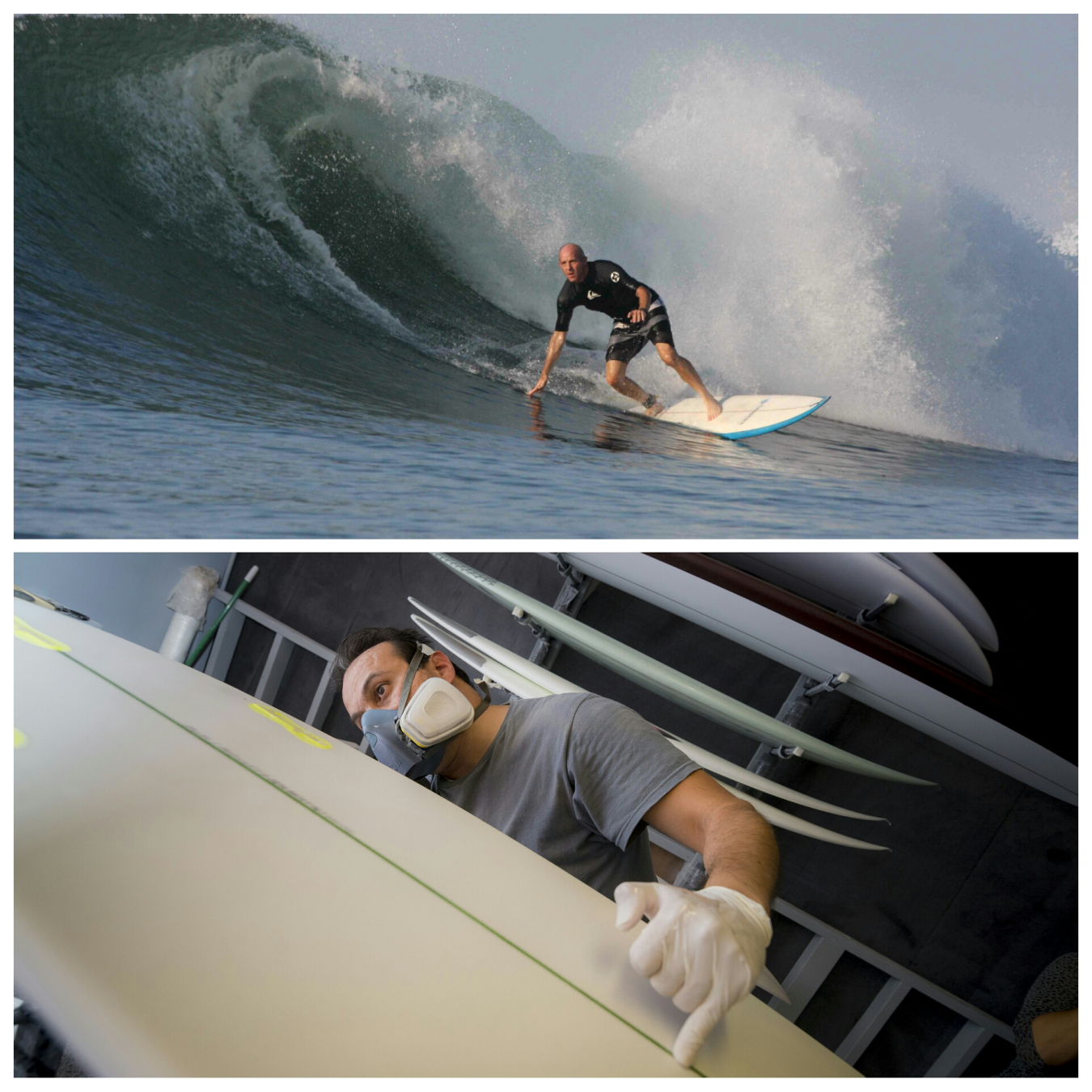EERE Success Story—Bioenergy Technologies Office R&D with University of California San Diego Results in First Algae Surfboard
May 19, 2015
Fossil-fuel derived polyurethane products may not be in demand in the coming years thanks to algae researchers. A joint research and development investment from the Energy Department’s Bioenergy Technology Office to the biotech firm Solazyme and the University of California San Diego’s (UCSD) California Center for Algae Biotechnology has resulted in the world’s first surfboard made from algae byproducts.
UCSD made the surfboards by converting algal oil supplied by Solazyme into polyols, used to make polyurethane foam. Surfboard manufacturer Arctic Foam then shaped and coated the foam boards with fiberglass and a renewable plant-based resin. The surfboards are sustainable products that can be produced without the use of petroleum. The end-product is also more flexible than standard petroleum-based surfboards, which appeals to many seasoned surfers. Early surfer reviews have said the initial prototype was a “perfect ten.”
12% of each barrel of crude oil in the United States is used to make petrochemicals such as polyurethane and other non-fuel products. Future use of algae-derived polyols could be used to create materials specifically tuned for improvements in foam and plastic characteristics. This could further broaden the scope of renewable and sustainable use of algae, displacing fossil fuel-based chemicals in everyday products. It may also provide a revenue stream for start-up companies seeking to scale-up algae production to the quantities required to meet the Energy Department’s 2030 goal of $3 per gallon gasoline equivalent algal biofuel.
For more information on the development of the algae-based surfboard, check out the UCSD article, Surfing into a Greener Future.
The Office of Energy Efficiency and Renewable Energy (EERE) success stories highlight the positive impact of its work with businesses, industry partners, universities, research labs, and other entities.

